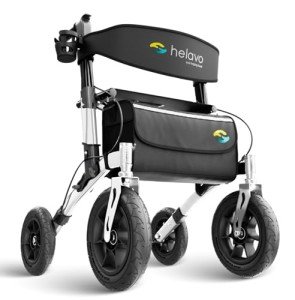A Comprehensive Guide to Medical Walkers: Enhancing Mobility and Independence
In the realm of healthcare, mobility plays an essential role in rehabilitation and total well-being, especially for seniors and those recuperating from injuries. Amongst the myriad of mobility aids available today, medical walkers stand apart as flexible tools that assist in motion and boost independence. This post will dive into the types, advantages, factors to consider, and FAQs regarding medical walkers.
What is a Medical Walker?
A medical walker, typically referred to as a walking frame, is a helpful device created to assist people with mobility obstacles walk with greater stability and ease. Walkers supply a broader base of support compared to walking sticks and crutches, making them ideal for those with balance concerns or minimal strength.
Kinds Of Medical Walkers
| Type | Description | Features |
|---|---|---|
| Standard Walker | A standard four-legged frame without wheels, used mostly for stability. | Lightweight, durable, adjustable height, suitable for indoor and outdoor use. |
| Wheeled Walker (Rollator) | A walker with wheels on the front legs, enabling easier movement. | Geared up with hand brakes, a seat for resting, and storage alternatives. |
| Hemi Walker | A walker developed for people who can utilize one arm and require support. | Lightweight and compact, features a curved deal with for much easier gripping. |
| Bariatric Walker | Developed for larger people, offering increased weight capability and stability. | Boosted durability, broader frame, and encouraging features for much heavier users. |
| Knee Walker | A special alternative for those with leg injuries, permitting them to rest the knee. | A platform to support the hurt leg, guiding capabilities, and brakes. |
Advantages of Using a Medical Walker
- Improved Stability: Walkers offer additional points of contact with the ground, resulting in a more stable walking experience.
- Increased Independence: Users can browse their environment without requiring assistance, increasing self-confidence and self-reliance.
- Enhanced Safety: The threat of falls is substantially decreased, as walkers offer support to those with balance issues.
- Versatile Usage: Many walkers are created for both indoor and outdoor use, adapting to numerous surfaces.
- Assistance throughout Rehabilitation: Medical walkers are important during recovery from surgical treatments, injuries, or health problems.
Considerations When Choosing a Medical Walker
When choosing a medical walker, different elements must be kept in mind:
| Consideration | Description |
|---|---|
| User's Condition | Assess the individual's strength, coordination, and specific requirements. |
| Equipment Weight | Ensure the walker is lightweight enough for easy handling however strong enough for support. |
| Adjustable Height | The walker needs to be adjustable to fit the user's height for optimum convenience and functionality. |
| Hand Grip Comfort | Check that the grips are comfortable to hold for extended durations. |
| Weight Capacity | Guarantee the walker can support the user's weight, especially for bariatric walkers. |
| Storage Needs | Identify if additional features like baskets or trays are essential for bring products. |
Frequently Asked Questions (FAQs)
- How do I identify if I require a walker?If you experience problem in preserving balance, feel unstable walking, or need assistance on flat surface areas or inclines, it's suggested to consult a healthcare expert for an evaluation. Can I use a walker outdoors?Yes, specially designed
- walkers with larger wheels(wheeled walkers or rollators)are suitable for outdoor usage and can handle numerous surfaces efficiently. How do I preserve my walker?Regularly check the walker for loose parts, make sure wheels are lubricated if
- appropriate, and clean it as needed. Seek advice from
the maker's guidelines for specific maintenance guidelines. Are walkers covered by insurance?Many insurance prepares deal coverage for walkers, however it is necessary to talk to your provider to comprehend your particular policy - information. Can a walker assist with physical therapy?Yes, utilizing
a walker can support rehab efforts by supplying stability throughout exercises advised by physio therapists. Medical walkers are indispensable tools that not - just assist in movement and self-reliance but likewise significantly improve the quality of life for individuals dealing with mobility challenges. With numerous types available, picking the ideal walker is
vital to satisfying specific needs. The journey to gaining back mobility can be daunting, however with the best equipment and support, individuals can conquer barriers and reclaim their independence. By understanding the types of walkers, their advantages, and important considerations, users can make educated options-- resulting in a safer, more positive method of moving through life. Whether it's a rollator for outdoor experiences or a simple walker for indoor navigation, the best walker can open doors to newly found flexibility and improvement in every day life.

